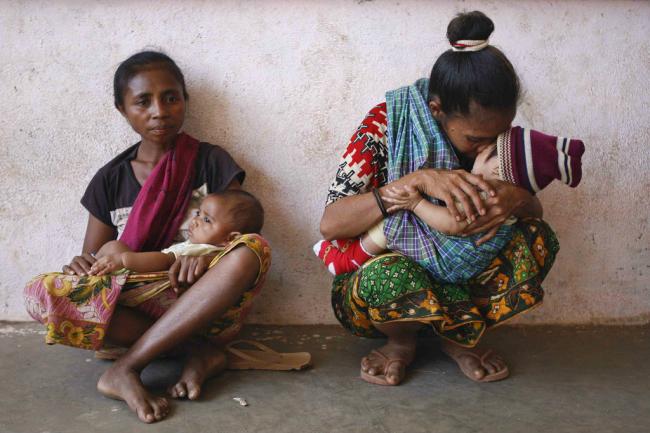
UN report outlines path towards closing gender gap, realizing reproductive health rights
The State of World Population 2017, a flagship report of the UN Population Fund (UNFPA), notes that these inequalities are not simply a matter of wealth, but social, racial and political, and are all mutually reinforcing. The report says that around the world, gender amplifies these inequalities. Too many women and girls do not have access to sexual and reproductive health care, which means they are unable to receive family planning services or antenatal care, and may be forced to give birth in unsafe conditions.
Pressed into motherhood early, or repeatedly, these girls and women are more prone to maternal injuries, disabilities or even death. They are less able to finish their educations or enter the paid workforce, leaving their families poorer and their children with bleaker futures.
The report also warns that these inequalities could undermine the global goals on ending poverty, eliminating preventable deaths and achieving sustainability.
The report outlines 10 actions that countries can take to create a more equal world:
Meet all commitments and obligations to human rights agreed in international treaties and conventions;
Tear down barriers that prevent young women from accessing sexual and reproductive health information and services;
Reach the poorest women with essential, life-saving antenatal and maternal health care;
Meet all unmet need for family planning, prioritizing women in the poorest 40 per cent of households;
Provide a universal social protection floor, offering basic income security and covering essential services, including maternity-related benefits and support;
Bolster services, such as childcare, to enable women to enter or remain in the paid labour force;
Adopt progressive policies aimed at accelerated income growth among the poorest 40 per cent, including through stepped-up human capital investments in girls and women;
Eliminate obstacles to girls’ access to secondary and higher education, and to their enrolment in courses in science, technology, engineering and mathematics;
Accelerate the transition from informal jobs to formal, decent work – focusing first on sectors with large concentrations of poor, female workers – and unblock women’s access to credit and property ownership; and
Work towards measuring all dimensions of inequality and how they influence each other, and strengthen links between data and public policy.
UN Photo/Martine Perret
Source: www.justearthnews.com
Support Our Journalism
We cannot do without you.. your contribution supports unbiased journalism
IBNS is not driven by any ism- not wokeism, not racism, not skewed secularism, not hyper right-wing or left liberal ideals, nor by any hardline religious beliefs or hyper nationalism. We want to serve you good old objective news, as they are. We do not judge or preach. We let people decide for themselves. We only try to present factual and well-sourced news.







